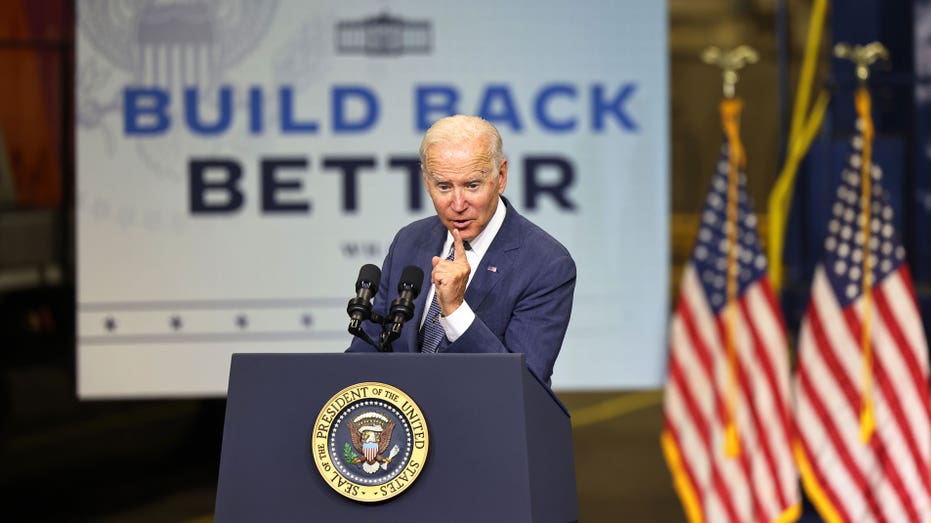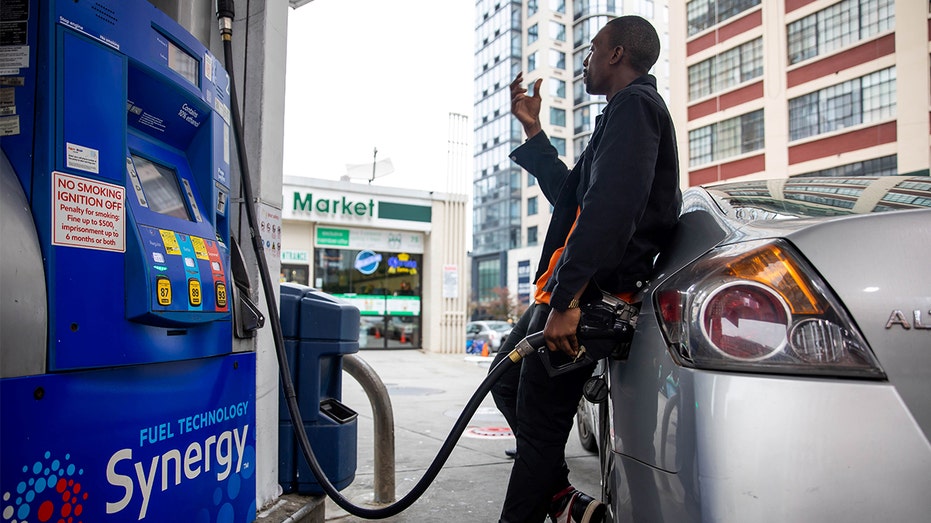Hotter inflation could mean higher tax bills for Americans in these states
Fed giving stimulus amid pandemic ‘partly added’ to inflation issue: Polcari
Slatestone Wealth chief market strategist Kenny Polcari provides insight into how Federal Reserve Chairman Jerome Powell may have impacted inflation concerns.
Millions of Americans could be in store for higher taxes as spiraling inflation pushes consumer prices higher.
The phenomenon, known as "bracket creep," results when taxpayers are pushed into higher-income brackets even though their purchasing power is essentially unchanged due to steeper prices for everyday goods.
Although the IRS adjusts federal income taxes for inflation, a recent analysis published by the Tax Foundation shows that 15 states fail to account for inflation when drawing the brackets for taxes on wage and income. Another 18 states do not index personal exemption tax to inflation.
Altogether, 22 states have at least "one major unindexed provision," which could mean higher taxes for millions of taxpayers amid a monthslong inflation spike that has shown no sign of slowing down.
US INFLATION EXPECTATIONS SURGE TO HIGHEST LEVEL SINCE 2013
Essentially, when tax brackets, the standard deduction or personal exemptions are not adjusted for inflation, that money loses value due to the higher price that consumers are paying for things like food, rent and gasoline, said the analysis, authored by Tax Foundation's vice president of state projects, Jared Walczak.
"Bracket creep occurs when more of a person’s income is in higher tax brackets because of inflation rather than higher real earnings," Walczak said. The so-called "hidden tax" is most likely to affect residents living in states where taxes are not indexed to inflation, meaning there's no automatic cost-of-living adjustment built into the tax provision in order to keep pace with inflation. States with an income tax that is not indexed to inflation include Alabama, Connecticut, Delaware, Georgia, Hawaii, Kansas, Louisiana, Maryland, Mississippi, New Jersey, New Mexico, New York and Oklahoma. For instance, a hypothetical Delaware resident who earned $60,000 in taxable income in 2019 and now makes $64,000 has not actually seen an increase in real income; the $64,000 she earns today has about the same purchasing power as the $60,000 she made in 2019, Walczak wrote. On top of that, because her state's income tax brackets are not indexed to inflation, that higher salary pushes her into a higher property tax rate (6.6%), whereas before she was paying a rate of 5.5%. Though the resident's purchasing power is unchanged, her tax bill rises by $264. "The absence or insufficiency of cost-of-living adjustments in many state tax codes is always an issue, as it constitutes an unlegislated tax increase every year, cutting into wage growth and reducing return on investment," Walczak wrote. "During a period of higher inflation, however, the impact is particularly significant." The analysis comes as the government released new data this week reporting that prices for U.S. consumers surged 6.2% in October compared with a year earlier. So-called core prices, which exclude the more volatile measurements of energy and food, rose 4.6% over the past year. Both are the largest increases in 30 years. GET FOX BUSINESS ON THE GO BY CLICKING HERE Rising inflation is eating away at strong gains and wages and salaries that American workers have seen in recent months (average hourly wages in the U.S. actually fell 1.2% last month compared with October 2020 when accounting for inflation). Economists expect the spike to last well into 2022: A new Goldman Sachs analyst note published on Sunday warned that inflation metrics will remain "quite high for much of next year" until global supply chain bottlenecks clear up. "It is now clear that this process will take longer than initially expected, and the inflation overshoot will likely get worse before it gets better," the Goldman economists wrote. Source: Read Full Article


